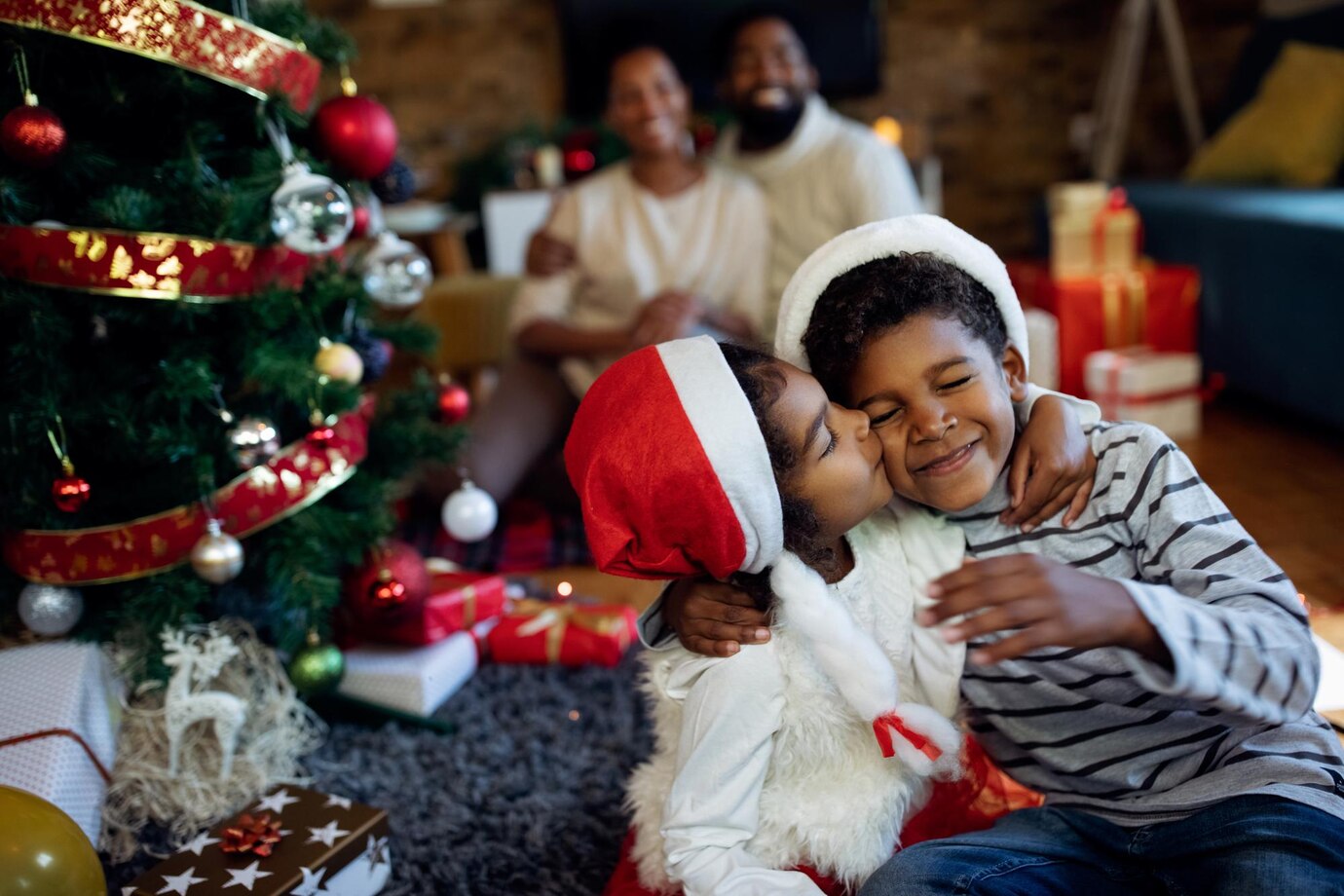05 December 2023
5 min.
With the promise of days off from school and work – and plenty of playtime – the festive season is a magical time of joy and celebration for most children, but it can also be a source of unexpected stress, sadness or anxiety.
During the holidays, regular routines are disrupted, and little minds experience big emotions. All of this can be hard to navigate if they don’t yet have the coping mechanisms and tools to self-regulate their feelings. Although there's no one-size-fits-all remedy to avert emotional outbursts, certain strategies can bolster your child's emotional resilience to help them (and you!) stay calm. Read on for more information on supporting children to achieve a stress-free festive season.

With children, you know it’s not always carols and Christmas cookies during the holidays: fun family festivities can quickly turn stressful if children aren’t able to process the whirlwind of family, friends and holiday activities – and their accompanying feelings.
While it’s normal for children to have meltdowns – after all, that’s just a part of parenthood – the holidays can be a particularly overwhelming time for young children as emotions run high.
Some of the emotions they might experience include…
Happy Emotions
The holidays can be a cheerful time for children as they experience:
Sad Emotions
This time of year can also trigger some not-so-happy feelings, including:
With these emotions in mind, there are several tactics you can take to ensure that your child is able to self-regulate their emotions during the busy festive period.
To set your child up for success this holiday season, it’s important to manage their expectations. The easiest way to do this is by asking them what’s important to them this winter break.
Principal Educational Psychologist Julia Clements says to “Talk to them about their favourite things about holidays. Sharing memories will help you get in touch with what makes time together as a family feel special.”
Once they’ve voiced what’s important to them – maybe it’s making decorations to deck out the tree or baking cookies with Grandma – let them know ahead of time if their desires for the period will be achievable or not.
According to UK organisation Family Action, managing expectations is about “Rephrasing that experience to find out what they want to do and talk about how you can build it in a different way.”
If Grandma can’t make it to Christmas this year, let them know ahead of time and suggest an alternative activity.
By managing your child’s expectations for the holiday season, they can better come to terms with what to expect and, in turn, better regulate their emotional responses.
For children, the winter holidays are just as much about the memories they create with the ones they love as they are about the gifts they’ll unwrap. Spending quality time together during this season helps foster a deep sense of belonging and security in children.
That’s why it’s super important to plan fun activities together throughout the winter break. The easiest way to properly plan is to ask your child if they have any activities in mind.
They may already have a few holiday traditions they’d like to do with you, like crafting Christmas ornaments or snuggling up to watch their favourite festive films.
If they’re a bit too young to suggest ideas, why not introduce them to activities you think they’d love and start your own traditions? The goal is to create moments that matter and memories to last a lifetime.
Looking for some inspo? Check out our blog on screen-free activities to do together this winter season and follow our socials this December for weekly activity tips.

From the influx of relatives to the cacophony of holiday parties, these celebrations, although joyful, can become overwhelming. That’s why having a dedicated quiet space for children is invaluable.
While it may seem counterintuitive to let your child spend time on their own – especially since the festive season is about spending time with family and friends – it’s important that young children have a space that’s all their own where they can decompress and relax when things start to feel a bit overwhelming.
By creating a space where children can retreat and decompress, we’re not only prioritising their emotional well-being, but acknowledging that their need for peace and self-reflection is recognised and understood.
The winter holidays, while joyful and festive, often bring about significant changes to children’s routines, which can be disorienting and overwhelming. It’s essential for parents and caregivers to be proactive in navigating this season to ensure a balanced and stress-free experience for their young ones.
By managing children’s expectations ahead of time, you can prepare them for the flurry of activities and help them adjust to the shift in their schedules.
Prioritising quality time ensures that amidst the holiday rush, the essence of the season – togetherness – isn’t lost. Whether it’s crafting together, baking treats, or simply reading stories, these shared moments can anchor their holiday memories.
Finally, recognising that the excitement can sometimes be too much, providing children with a quiet space to retreat and recharge is key.
This thoughtful approach not only preserves the magic of the holidays but also ensures our children feel supported, understood, and cherished during the festive season.
